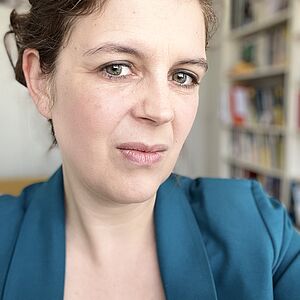
Anja Thomas
Research
Anja's research focuses on the transformation of democracy in Europe and in the European integration process. Anja has for example studied the varying institutionalisation of French and German Members of Parliaments' EU affairs participation and currently works on populism as specific democratic morals inducing behavioural change in policy-making.
Anja combines interviews and ethnographic work, with systematic comparison. Her work draws on different bodies of literature and ‘state(s) of the art’, in particular comparative democracy studies and the sociology of institutions.
Research projects
Democratic elite perceptions of the Economic and Monetary Union
Shedding light on legitimacy conflicts within the EMU
The legitimacy of governance within the Economic and Monetary Union (EMU) is controversial. Conflicts arise within the daily democratic practices of domestic policy elites, notably during the budgetary exercises of the European Semester, highlighting a considerable gap in existing literature. With the support of the Marie Skłodowska-Curie Actions programme, the D-EMU project will apply a mix of interdisciplinary methods to examine four pivotal cases – France, Germany, Italy, and the Netherlands. It hopes to considerably change our comprehension of legitimacy conflicts in the EMU and stimulate discussions on tailored democracy standards for EU decision-making depending on the socio-political regime at stake. By focusing on data sustainability in qualitative research, D-EMU endeavours to promote more systematic comprehension of democratic practices across different time periods. This is crucial to understand the processes of democratisation and dedemocratisation which we currently whitness in modern democracies.
101107703 - MSCA - Hochschule Fulda, European University Institute, Institut polytechnique de Paris



